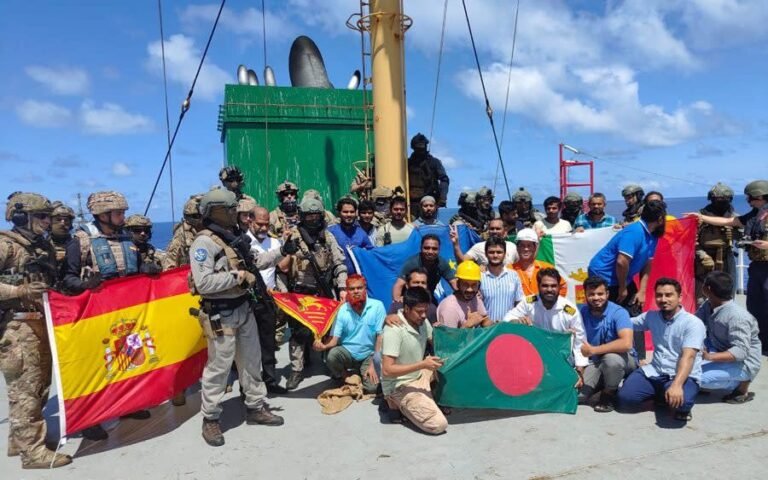Somali piracy is on the rise once again, fueled by a combination of overfishing by foreign trawlers and rising tensions in the Red Sea. Locals and experts believe the surge in piracy is linked to a gap in security patrols and a weak state presence. Former pirate Abdikarim Yusuf, who once took part in the illegal activities, says that young men today are driven more by opportunity than by the same grievances that motivated him years ago.
Piracy Returns Amid Red Sea Instability
After years of decline, Somali piracy has made a comeback in 2025, with several vessels captured by pirates since the beginning of the year. The rise in piracy is partly due to the growing security vacuum left by the Houthi attacks on shipping in the Red Sea. These attacks have stretched the resources of naval patrols, which were previously focused on preventing piracy off Somalia’s coast.
In one of the most prominent piracy incidents in recent months, pirates seized the Bangladesh-flagged MV Abdullah in 2024 while it was en route from Mozambique to the UAE. The 23-member crew was held hostage until a reported $5 million ransom was paid for their release.
Overfishing and a Fragile Coastal Economy
According to locals, illegal fishing by foreign vessels from countries like Iran, Yemen, Pakistan, and even China and Thailand, has been devastating Somalia’s fishing industry. Abdikarim Yusuf, a former pirate, remembers how his father’s livelihood dwindled as foreign trawlers stripped Somalia’s waters of fish.
Illegal fishing is quieter and less visible but has caused significant harm over time. Local fishers know what is happening, and the coastal economy is fragile. With little government presence, grievances about foreign exploitation are growing, creating fertile ground for piracy.
A Shift in Motivation
Abdikarim Yusuf, now living in Garowe, reflects on his past involvement in piracy. As a young man, he believed that his actions were justified. He said they saw themselves as victims, believing the foreign trawlers were stealing from them and that the state did nothing to protect their livelihoods. Piracy seemed like the only way to survive.
However, Yusuf no longer has sympathy for today’s pirates. He views them as opportunists who risk bringing more foreign intervention and military involvement to Somalia. The global community is watching, and these actions could lead to more militarization of Somalia.
The Role of the Red Sea Crisis
The ongoing instability in the Red Sea has further complicated the security situation. While the Red Sea crisis, sparked by Houthi attacks on shipping, continues to draw attention, Somali pirates are exploiting the situation. As naval patrols are diverted to address the growing threats in the Red Sea, Somali pirates are using the opportunity to return to their old ways.
Analysts warn that this new wave of piracy could have significant implications for global trade. As shipping lanes around the Horn of Africa remain critical for international commerce, any disruption could lead to increased shipping costs and delays. For Somali pirates, these disruptions are opportunities to claim high ransoms and disrupt the flow of goods.
Piracy’s Cost to Global Trade
Over the past decade, piracy off the coast of Somalia has cost billions of dollars in ransoms, lost cargo, and increased security measures. The situation has led to significant investments in anti-piracy efforts, including naval patrols and international cooperation. Despite these measures, piracy remains a persistent threat, particularly when local grievances and security lapses create the perfect storm.
In 2025, the European Union’s naval task force, which has been patrolling the area, reported the capture of three vessels, marking a significant rise in piracy incidents since 2023. With piracy on the rise again, the international community must find new ways to address the root causes of the problem, including overfishing, weak governance, and foreign interference in Somalia’s waters.
The Way Forward: A Need for Sustainable Solutions
Experts agree that a lasting solution to Somali piracy requires addressing the underlying issues. Sustainable fishing practices, stronger government presence along Somalia’s coast, and international cooperation to combat illegal fishing are essential to restoring stability to the region.
Yusuf’s story highlights the complex motivations behind piracy. For many young men, piracy is not just a crime but a response to a system that has left them with few options. To prevent further outbreaks of piracy, the global community must work together to restore economic opportunities to Somalia’s coastal communities and ensure that foreign exploitation of Somali waters is stopped.







